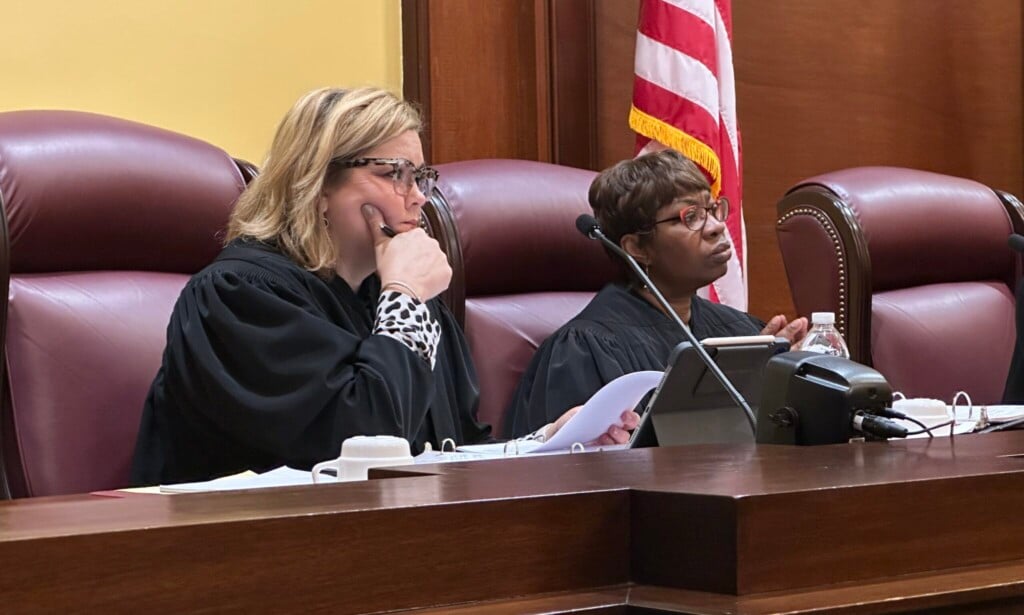Cliff Middleton campaigns for prosecutorial review 32 years into his father’s 200-year prison sentence
Kenneth Middleton, a Missouri man from Jackson County, was convicted of first-degree murder of his wife, Kathy, and was sentenced to 200 years in prison without the chance of parole. Now, 32 years into that sentence, he and his family are adamant that an official review of the case would show that he was not responsible. But the way forward for a legal re-examination is filled with hurdles that a new law might be able to expedite.
In 1990, Middleton was charged with shooting and killing his wife, Kathy. Middleton has maintained his innocence all these years, and even refused an Alford plea deal in 2004—which would have freed him from prison—insisting he would not accept a plea for a crime he did not commit.
According to a case report on Justia US Law, “on February 12, 1990, Katherine Middleton was at work at AT & T in Lee’s Summit, Missouri, when she received a phone call from her husband, the defendant, who complained of illness. She left work and drove home. Approximately twenty minutes later, at 1:52 p.m., the 9-1-1 dispatcher received a call from the defendant requesting an ambulance. The defendant told the dispatcher, ‘A gun just went off and hit my wife… in the side of the head.’ Within three minutes, a second call was received by the 9-1-1 operator. The caller told the 9-1-1 operator, ‘There wasn’t supposed to be anything in it. Oh God.’”
The case report continues that when questioned at the scene by an officer, Ken Middleton “explained that he had been sick and had called his wife home from work. While he waited for her, he was cleaning his Smith & Wesson .357 Magnum. He explained that when his wife got home, she picked up the gun, started to walk to the other room, dropped the gun and it went off.”
Kenneth Middleton’s son, Cliff Middleton, has been campaigning for his father’s freedom since the conviction, for over three decades now. Cliff was 20 years old when Kathy died, and she had been his stepmother since he was five years old, according to past Pitch coverage. He can’t conceive that Kathy’s death was anything beyond a tragic accident and says his father never spent a day in jail in his life before Kathy’s death.
“Ken calls his son from prison five times a day to talk strategy. Even when Cliff is exhausted from a day of hauling cars to dealerships—a trade he followed his dad into—he picks up the phone. Cliff works on his website about Ken, meets with Ken’s lawyers, calls media outlets and meets with community activists, never giving himself a day off—not for holidays, not for his wedding, not for the births of his three children,” writes Ben Palosaari for The Pitch in 2010.
Cliff calls for yet another evidentiary review in his father’s case from an outside prosecutor, similar to the sort that recently freed Kevin Strickland, a wrongfully convicted Missouri man who served 43 years in prison for murder charges before receiving the review of his case that ultimately led to his exoneration.
Cliff Middleton says he believes evidence was withheld or destroyed during his father’s trial, including test results regarding gunshot residue on the victim’s left hand, which may have proven his father’s innocence.
Middleton believes prosecutorial misconduct occurred in the case proceedings. The prosecutor assigned to his father’s case, Patrick Peters, froze his father’s assets while he was on trial—preventing him from being able to hire his own legal representation. Peters also froze Middleton’s assets with a condition on his bond that he “Not dispose of any marital or jointly held assets,” according to Cliff Middleton—and Cliff Middleton points out that this has since been ruled unconstitutional by the Supreme Court in the 2016 case Luis v. United States.
Middleton explains how his father’s assets came to be frozen before the trial: “My former aunts, my stepmother’s sisters, were basically pushing for charges to be brought against my father, and they told the prosecutor [Patrick Peters] my father’s net worth, which they were guessing. So they told the prosecutor that his net worth was 500,000, and the prosecutor sent them to his father’s law firm, to hire his father’s law firm. So that’s how it happened. So on February 28, two weeks later, my father was arrested, and Pat Peters asked for a $500,000 secured bond.”
“When you got the state of Missouri coming after you with unlimited resources, you need your resources to defend yourself,” continues Cliff Middleton. “So, you know, my father was strapped with an attorney.”
Complaints of prosecutorial misconduct were also filed due to the prosecutor assigned to the case, Patrick Peters, being employed at the law firm where the sisters of the victim brought the suit, since his father being former Jackson County Circuit Judge William creates a further financial conflict of interest.
An affidavit was filed by Middleton’s original attorney, Robert Duncan, in 1996, but Duncan passed away from cardiac arrest a few weeks after filing the affidavit, according to Cliff Middleton, so nothing ever resulted from it.
A newly enacted law in Missouri allows for such case reviews post-conviction, but the prosecutor assigned to the case has to file for review. In this case, the motion would have to be filed by Jackson County Prosecutor Jean Peters Baker, who recently filed the motion for review in the case of Kevin Strickland. Cliff Middleton hopes his father’s case could turn out like Strickland’s, though he is conflicted about how much justice this outcome would actually serve.
“There are a lot more wrongfully, wrongfully convicted people in Jackson County than Kevin Strickland. And how much justice did she [Jean Peters Baker] really give the man? He had already served 43 years of a 50 year sentence,” says Cliff Middleton. “So you know, she didn’t step up. So when you stop and think about it, when she chose Kevin Strickland’s case, hey, that’s a good case. This guy’s almost done with the sentence anyway. And I’m just telling you, that’s just, I felt like there was a lot of politics behind why Jean Peters Baker chose Kevin Strickland.”
“I’m totally behind Kevin Strickland. I’m very happy for him. I want to make that clear,” says Cliff Middleton. “But do I feel like justice was served by that? No. Do I want my father home? Yes. But it is a travesty of justice that 17 years after the trial judge overturned my father’s conviction, he is sitting in prison because of jurisdiction totally unrelated to his conviction.”
The office of Jean Peters Baker provided the following comment when contacted by The Pitch, regarding the case as a whole:
“The Jackson County Prosecutor’s Office has conducted four reviews of this case over the years, including one by a previously elected prosecutor and one that included an outside counsel engaged to review the case. Each review did not support Middleton’s claims of innocence. Our Conviction Integrity Unit would require new evidence to open a fifth review. We sympathize with the family but unfortunately, that doesn’t equal a wrongful conviciton. We would support a review of Mr. Middleton’s sentence, given his age, by the Governor of Missouri. We do not have authority to adjust his sentence.”
Kenneth Middleton is currently incarcerated at Crossroads Correctional Center in Cameron, MO. He is 78 years old, and after over 30 years of imprisonment, he still maintains his innocence and talks with his son about it often.
Cliff Middleton is still fighting for an evidentiary review in his father’s case. Attorney Kent Gipson filed a motion for review in late January 2023, but Judge Jennifer Phillips denied the motion on Jan. 30.
“Trust me, it’s not going to end there,” says Cliff Middleton.
You can read more about Middleton’s story and his son’s advocacy for a review of his father’s case at a website dedicated to the cause.
“This new statute gives the courts jurisdiction, but a conflicted prosecutor won’t file a motion, you know, and that’s all we need,” says Cliff Middleton. “All we need is jurisdiction to get back into court.”







